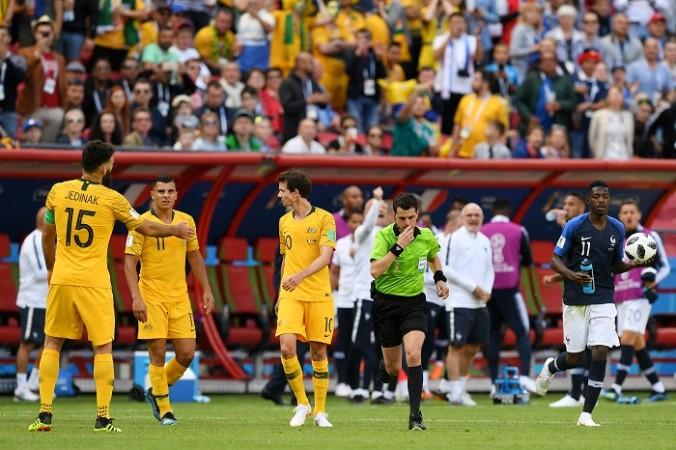
Some will say, the agony of a poor decision from the referee and being able to moan about it after the game is just as much a part of football as anything else – being a fan, after all, is about taking the pain with the pleasure. However, at the end of the day, the main job of any referee should be to get the major calls right, and with the Video Assistant Referee (VAR) coming into play at this Fifa World Cup 2018, the plan was to do just that.
For the first four games of the Fifa World Cup, the VAR didn't quite come into it, even if there were a couple of instances where the referee paused to make sure the goal could be given or if there was a foul there or not – Diego Costa's clash with Pepe before scoring Spain's opening goal, being a case in point.
In the first game on Saturday, in sunny Kazan, though, the VAR was front and centre, with the referee Andre Cunha kept a busy man.
After a rather dull opening 45 minutes, the game sprung into life just before the hour, when a through ball from Paul Pogba – a peach of a through ball too – looked to spring Antoine Griezmann clear.
The Australian defence, for the first time really, had been a little caught, but it looked like Joshua Risdon had made a really good challenge to deny France and Griezmann, who went down inside the box. The referee waved play on, but after a minute or so of play, was told on the communication device to take another look at that incident.
Off he went off the pitch to take a look at the screens that are set up for just such an instance, and within a few seconds the Uruguayan referee had made a decision, with replays showing Risdon hadn't got the ball and had left his leg in the air to make sure he would trip Griezmann.
A yellow card for the Socceroos defender and a penalty followed, with Griezmann expertly dispatching that into the corner to give France the lead.
The VAR nearly came into play within minutes of that opening goal, when Samuel Umtiti left his arm up in the air so that the ball would hit his hand, but, this time Cunha, after taking a couple of seconds, awarded Australia the penalty, without the need of technology.
Mile Jedinak, the Aussie skipper, did what Griezmann managed at the other end and it was back level, with the game flowing quite nicely.
Now, no technology will be fool-proof; there will be problems, issues and irritations, but to not use it when you can make a decision that could completely change the outcome of the game would be pretty stupid, and Fifa, thankfully, have taken the smarter route – not often you can say that about them.
There was a lot of talk before the start of the tournament, about how VAR would jeopardise the Fifa World Cup 2018, and about how it would disrupt the game and make it lesser of a spectacle. As the incident in Kazan showed, however, all those complaints are unfounded, and to get the right decision, particularly when it is such a crucial one, a few seconds or a minute or two of stoppage is fine. Teams waste much more time than that during the normal passage of play.
And just to make that "technology is good for football" argument stronger, the Goal-line technology came into play to award France the match-winner, when a Paul Pogba deflected shot crept past the goal-line after hitting the underside of the bar.
VAR, and technology in general, has its issues, but, overall, the pros outweigh the cons.










